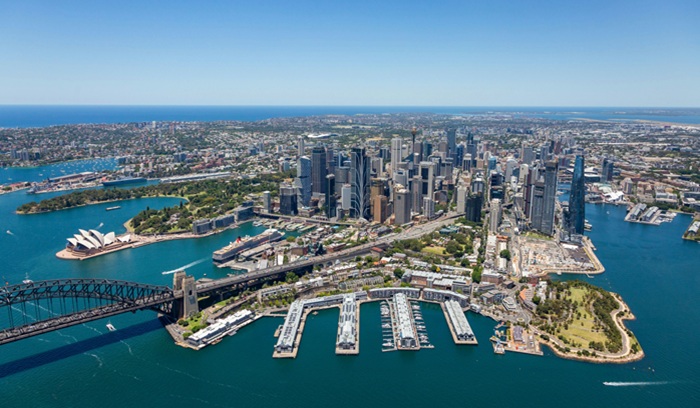Sydney, Australia’s most populous city, has taken a decisive, positive step toward eliminating fossil fuels from its urban infrastructure. The city council voted to mandate that all new major buildings must be built entirely all-electric, effectively banning natural gas connections. This pioneering bylaw applies to all new residential, commercial, and industrial developments. It positions Sydney as a global leader in urban decarbonization policy.
This action is crucial for meeting the city’s climate targets. It accelerates the transition to a modern, efficient, and healthy built environment. This mandate proves that ambitious climate action is feasible in one of Australia’s largest metropolitan centers.
Addressing the Cost and Climate of Gas
The mandate is driven by strong economic and environmental rationale. Natural gas, often marketed as a “cleaner” fossil fuel, has become increasingly expensive and contributes significantly to climate change. The city recognized that locking new buildings into 20 to 50 years of gas infrastructure would undermine its net-zero goals. This proactive ban prevents future reliance on a polluting and costly energy source.
The switch to high-efficiency electric appliances, such as heat pumps, is financially beneficial over the long term. These appliances are more efficient than gas appliances for heating and cooling. This saves building owners and residents money on energy bills over the life of the property. This policy demonstrates fiscal responsibility alongside environmental leadership.
Securing Healthy and Efficient Urban Life
A major positive consequence of the all-electric mandate is the direct improvement in public health. Burning natural gas inside buildings, particularly for cooking and heating, releases indoor air pollutants like nitrogen dioxide (NO2). These pollutants have been linked to increased rates of asthma and respiratory issues. Eliminating gas connections removes this indoor pollution source entirely.
This creates healthier, safer living and working environments for all residents. The policy is particularly beneficial for children and those with pre-existing respiratory conditions. This systemic approach to building design ensures that Sydney’s growth is aligned with the well-being of its population. The U.S. Environmental Protection Agency (EPA) provides resources on the health risks associated with indoor NO2 from gas appliances.
Boosting Renewable Energy Integration
The gas ban is a strategic move that enhances the integration of renewable energy. By electrifying the building sector, the city is increasing the demand for clean electricity. This provides a strong market signal for investors to fund more solar and wind projects across New South Wales. This synergy between building policy and energy production accelerates the transition to a 100% renewable grid.
The city’s action helps to stabilize the overall energy system. It ensures that the electricity generated by clean sources is used efficiently. This policy is crucial for achieving Sydney’s goal of reaching net-zero emissions by 2035. The transition encourages the use of advanced battery storage and smart grid technology. The International Energy Agency (IEA) tracks the impact of building electrification on national decarbonization goals. A Blueprint for Global Urban Decarbonization
Sydney’s bold mandate sets an inspiring precedent for global urban decarbonization. The city joins a growing movement of global leaders who are phasing out gas in new construction. Other cities, such as New York and London, have implemented similar policies. This collective action demonstrates that cities can lead the way in tackling the climate crisis.
This local success provides a clear, actionable blueprint for other municipalities in Australia and around the world. It proves that ambitious climate policy can be implemented without halting development. The Council of the City of Sydney provides official policy documents detailing their net-zero strategy. The Australian Renewable Energy Agency (ARENA) supports the transition to all-electric infrastructure nationwide.
Resources
- U.S. Environmental Protection Agency (EPA) on Indoor Air Pollution and Health Risks
- International Energy Agency (IEA) on Building Electrification and Decarbonization
- Council of the City of Sydney on Environmental Planning and Net Zero Strategy
- Australian Renewable Energy Agency (ARENA) on Building Electrification
More Good News
-

Senegal launches all-electric bus network powered by renewable energy
Senegal has successfully launched a transformative Bus Rapid Transit system in Dakar, featuring a fleet of 121 fully electric buses. As the first network in Sub-Saharan Africa to operate entirely on renewable energy, the initiative utilizes local solar power to transport up to 300,000 passengers daily. By utilizing dedicated lanes, the clean energy fleet cuts cross-city commute times in half while preventing nearly 60,000 tons of carbon dioxide emissions annually. This monumental project dramatically improves urban air quality and establishes Senegal as a pioneering leader in sustainable, green public infrastructure.
-

Yangtze River showing remarkable ecological recovery following fishing ban
China’s Yangtze River is experiencing a remarkable ecological revival five years into a sweeping ten-year commercial fishing ban. Recent surveys reveal significant increases in overall fish biomass and the heartening return of critically endangered species in the world’s fifth largest river. Furthermore, thousands of former commercial fishers have been successfully transitioned into new roles as official river guardians. This massive conservation effort offers a hopeful, replicable model for global freshwater restoration.
-

Rob Jetten becomes The Netherland’s first openly gay prime minister
In a historic victory for representation and progressive politics, Rob Jetten has been sworn in as the first openly gay Prime Minister of the Netherlands. At 38 years old, the centrist Democrats 66 leader is also the youngest head of government in Dutch history. Jetten successfully formed a minority coalition government following a tense election that defeated far-right populist opponents. His platform prioritizes climate investment, economic fairness, and strong international collaboration. Jetten’s premiership powerfully reaffirms the Netherlands’ global legacy as a pioneer of LGBTQ+ equality and inclusive, cooperative democratic leadership.
-

Millions of New York City workers gain additional time off through new law
Millions of workers in New York City are benefiting from a major expansion of the Protected Time Off Law, which officially took effect in late February 2026. The progressive legislation grants employees an additional 32 hours of unpaid, protected leave that is available immediately upon hire or at the start of the calendar year. This ensures workers do not have to wait to accrue hours before addressing sudden medical emergencies or family crises. The law also vastly expands permitted uses to include mental health care, public disaster recovery, and caring for disabled loved ones.
-

Malaysia bans electronic waste imports to protect the environment and public health
In a monumental victory for public health and environmental justice, Malaysia has enacted an immediate and absolute ban on the importation of electronic waste. By removing regulatory loopholes and launching a strict enforcement campaign, the nation is successfully preventing toxic heavy metals from polluting its soil and waterways. Authorities have already intercepted hundreds of thousands of kilograms of illegal e-waste at major ports, vowing to return the hazardous materials to their countries of origin. This decisive action establishes Malaysia as a leading force in Southeast Asia’s growing movement to reject global waste and prioritize ecological sustainability.
